 "How to Raise a Kraken in Your Bathtub" by P. Djèlí Clark in Uncanny Magazine Issue 50, January-February 2023 by P. Djèlí Clark
"How to Raise a Kraken in Your Bathtub" by P. Djèlí Clark in Uncanny Magazine Issue 50, January-February 2023 by P. Djèlí Clark Format: ebook
Source: supplied by publisher via Hugo Packet
Formats available: magazine, ebook
Genres: historical fantasy, short stories, steampunk
Series: Uncanny Magazine Issue 50
Pages: 26
Published by Uncanny Magazine on January 3, 2023
Purchasing Info: Author's Website, Publisher's Website, Amazon, Barnes & Noble, Kobo
Goodreads
The January/February 2023 issue of Hugo Award-winning Uncanny Magazine .
Our landmark Issue 50, a double sized issue! Featuring new fiction by Ken Liu and Caroline M. Yoachim, Mary Robinette Kowal, P. Djèlí Clark, A. T. Greenblatt, A.M. Dellamonica, Eugenia Triantafyllou, Sarah Pinsker, E. Lily Yu, Marie Brennan, Christopher Caldwell, John Wiswell, and Maureen Mchugh. Essays by Elsa Sjunneson, John Picacio, Annalee Newitz, A.T. Greenblatt, Diana M. Pho, and Javier Grillo-Marxuach, poetry by Neil Gaiman, Terese Mason Pierre, Sonya Taaffe, Betsy Aoki, Theodora Goss, Ali Trota, Abu Bakr Sadiq, Elizabeth Bear, and Brandon O'Brien, interviews with Ken Liu and Caroline M. Yoachim by Tina Connolly; interviews with Eugenia Triantafyllou, E. Lily Yu, and Christopher Caldwell by Caroline M. Yoachim, a cover by Galen Dara, and editorials by Lynne M. Thomas and Michael Damian Thomas, and Meg Elison.
My Review:
The title of this story is the title of the manual that Trevor Hemley receives along with the rather expensive ‘Kraken egg’ that he’s purchased from an advertisement in the back of a magazine. Which all sounds utterly dodgy when you think about it for even half a second – but Trevor Hemley didn’t. Think, that is.
All Trevor thought about was the possibility of fame and fortune, of finally proving to his wealthy father-in-law that he was worthy of the hand of the man’s daughter – even though he already had that hand, along with a lovely home and a secure position all provided by his wife’s father.
Which of course made him feel all that more looked down upon by his wife’s family and their wealthy connections.
So a kraken. Or rather a plan to hatch said kraken in his bathtub, reveal the existence of the long-believed either mythical or extinct kraken to the world, and reap the rewards that Trevor felt were his due. After all, in Trevor’s Victorian Era, the Industrial Revolution was in full swing, fantastic discoveries were being made around the globe by Englishmen of science and daring, and the sun never set on an Empire that reaped the benefits of all the countries to which it believed it was bringing enlightenment while raping their economies and destroying their cultures.
But England is unassailable from without – as history has proven time and again. Which does not mean that it can’t be conquered – or that vengeance can’t be delivered upon it – from within. One crate and one bathtub at a time.
By a monstrous and rapacious creature – in fact a whole horde of them – with appetites as large as empires.
Escape Rating A-: The whole of this story is considerably greater than the sum of its parts, which is merely one part of what makes it so much fun and so thought provoking at the same time.
On the surface, it’s a bit of a funny story about a man whose reach has very definitely exceeded his grasp, as well as a bit of a morality tale about the parting of fools and their money, combined with the message that anything that sounds too good to be true generally is and that people generally get conned because they’ve conned themselves first.
But those messages were delivered in a thrashing of tentacles and teeth which Trevor Hemley certainly deserved. What gives the story its shiver of horror mixed with delicious righteousness is the way that Trevor is merely a part of the deliverance of those messages to a much wider and even more deserving ‘audience’.
Because it’s not really about the kraken after all. Even though it still is. And it’s the double-barrelling of the story, that it’s both the tongue-in-cheek tale of a man who does something really, really stupid and pays for it, AND it’s a story about colonialism where the colonizers get more than a few tentacles of their just desserts.
The title of this is marvelous, eye-catching and true in more ways than one – much like the story it represents. However, that title isn’t the only reason I picked this up yesterday – but it is one of the reasons that I picked it first out of the Hugo Packet for this year’s awards – which leads me straight into the other reasons I chose to read this story to round out a week that’s had a whole lot of ‘meh’ in it.
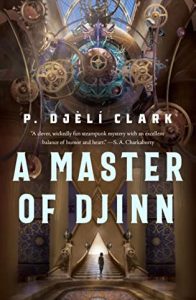 As a person with at least a Supporting Membership in this year’s World Science Fiction Convention, I have voting rights for the Hugo Awards. In order to be informed about exercising those rights, the Awards committee compiles a packet of ebook versions of as much of the nominated material as the publishers will give them. That packet became available this week and I immediately downloaded the lot.
As a person with at least a Supporting Membership in this year’s World Science Fiction Convention, I have voting rights for the Hugo Awards. In order to be informed about exercising those rights, the Awards committee compiles a packet of ebook versions of as much of the nominated material as the publishers will give them. That packet became available this week and I immediately downloaded the lot.
A lot that included this story by P. Djèlí Clark, whose previous work I have very much enjoyed, and in the case of the whole, entire Dead Djinn Universe (A Dead Djinn in Cairo, The Angel of Khan el-Khalili, The Haunting of Tram Car 015 and the utterly awesome A Master of Djinn) absolutely loved. While there are no djinn in this story, dead or alive, I was still up for some of his work because I knew it would be a gem whether or not it had received a Hugo nod.
All of which is to explain that many of the works that have received Hugo nominations (including another story from this very issue of Uncanny Magazine!) will appear in reviews here over the coming weeks. Based on the works that I have already read, plus this first foray into the nominated shorter works, it’s going to be an excellent year for the Hugos no matter which stories ultimately go home with rockets!

 A Mischief of Rats by
A Mischief of Rats by 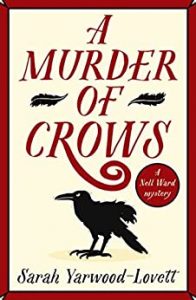 Whichever of her two personas is her alter ego, both of them are entirely too busy during the jam-packed weekend this story takes place.
Whichever of her two personas is her alter ego, both of them are entirely too busy during the jam-packed weekend this story takes place.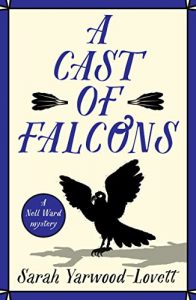 Escape Rating B-: This third book in the
Escape Rating B-: This third book in the  I admit that this is a ‘me’ thing that may not be a ‘you’ thing. Howsomever, for this reader it feels like Nell’s romantic trials and tribulations are a bit over the top, particularly as her rich and aristocratic background – along with her surprisingly functional relationship with her parents – seem to have insulated her from a whole lot of regular stresses and issues to the point where over-the-top is the only direction left.
I admit that this is a ‘me’ thing that may not be a ‘you’ thing. Howsomever, for this reader it feels like Nell’s romantic trials and tribulations are a bit over the top, particularly as her rich and aristocratic background – along with her surprisingly functional relationship with her parents – seem to have insulated her from a whole lot of regular stresses and issues to the point where over-the-top is the only direction left.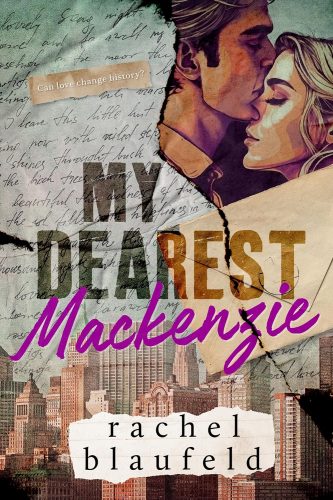 My Dearest Mackenzie by
My Dearest Mackenzie by 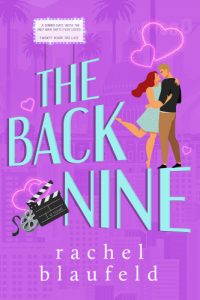 Also, Milly’s real name was Rose and so was my own grandmother’s. So there’s that.
Also, Milly’s real name was Rose and so was my own grandmother’s. So there’s that.
 Lovers at the Museum by
Lovers at the Museum by  The
The 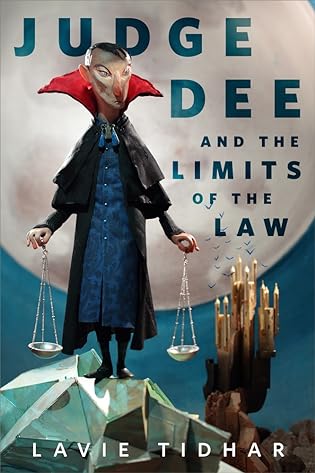 Judge Dee and the Limits of the Law (Judge Dee, #1) by
Judge Dee and the Limits of the Law (Judge Dee, #1) by 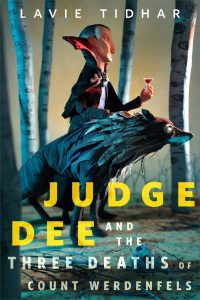 What makes the story fun – more than fun enough that I’ll be picking up the next story the next time I need something short to tide me over an overcommitted calendar – is the first person perspective of poor, put upon, Jonathan. He’s snarky, he’s both world-weary and vampire-weary, but he’s always aware of the side on which his bread is buttered – when he can get any, that is. So his commentary covers the Judge, the law he administers, his opinions and predilections, but also the companionship they provide each other.
What makes the story fun – more than fun enough that I’ll be picking up the next story the next time I need something short to tide me over an overcommitted calendar – is the first person perspective of poor, put upon, Jonathan. He’s snarky, he’s both world-weary and vampire-weary, but he’s always aware of the side on which his bread is buttered – when he can get any, that is. So his commentary covers the Judge, the law he administers, his opinions and predilections, but also the companionship they provide each other.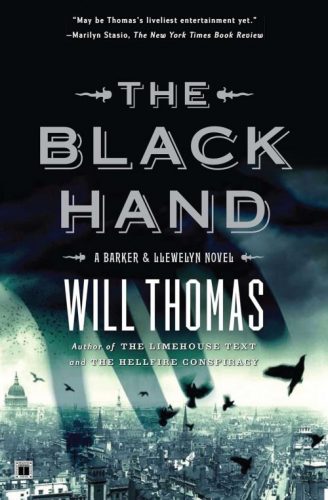 The Black Hand (Barker & Llewelyn, #5) by
The Black Hand (Barker & Llewelyn, #5) by 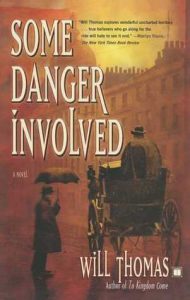 So far, at least, the
So far, at least, the 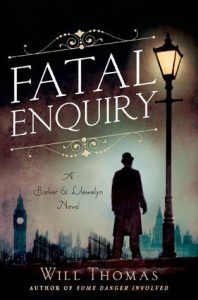 Last but not least there’s the resonance to the now in this story that is very much steeped in the ‘then’. Because while the case may be about the Mafia, what’s behind their advent into London is a debate about immigration and immigrants and just how easy or difficult it should be and just how much enforcement is necessary and which way and upon whom the economic impacts have and will fall.
Last but not least there’s the resonance to the now in this story that is very much steeped in the ‘then’. Because while the case may be about the Mafia, what’s behind their advent into London is a debate about immigration and immigrants and just how easy or difficult it should be and just how much enforcement is necessary and which way and upon whom the economic impacts have and will fall. Because I’ve enjoyed this series so much so far, it was an obvious choice for one of this week’s Blogo-Birthday giveaways – especially as the latest book in the series,
Because I’ve enjoyed this series so much so far, it was an obvious choice for one of this week’s Blogo-Birthday giveaways – especially as the latest book in the series, 
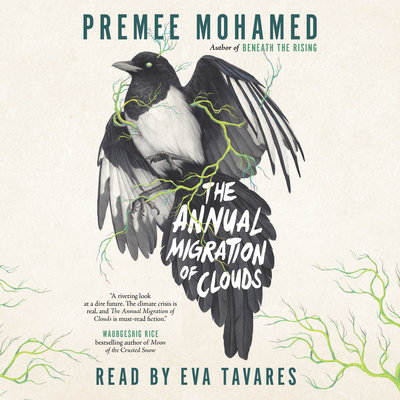 The Annual Migration of Clouds by
The Annual Migration of Clouds by 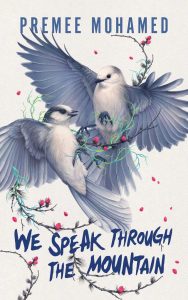 Escape Rating A-: I picked up this book because I read the sequel to this,
Escape Rating A-: I picked up this book because I read the sequel to this,  A Cast of Falcons by
A Cast of Falcons by 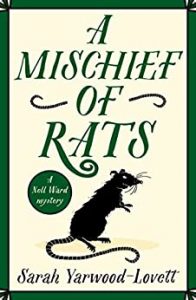 There are plenty of suspects for Hawke’s murder, as the man was a charming, conniving slimeball who left a trail of ruined companies and broken people in his wake – and clearly planned to do the same to Percy, her family, and her family’s properties.
There are plenty of suspects for Hawke’s murder, as the man was a charming, conniving slimeball who left a trail of ruined companies and broken people in his wake – and clearly planned to do the same to Percy, her family, and her family’s properties.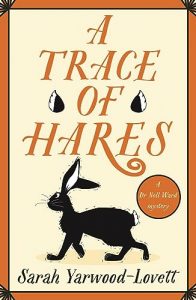 Escape Rating B+: The latest book in this series,
Escape Rating B+: The latest book in this series, 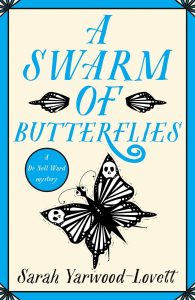 I found Nell to be a likable amateur investigator, and certainly felt for her inability to keep herself out of the investigation. After her previous experience, I wouldn’t have trusted the police either – which makes her decision to date the man who investigated her the first time around a bit questionable. While the ‘torn between two (potential) lovers’ dilemma that Nell is in the midst of isn’t my favorite, it was certainly an interesting twist on the theme to experience it more from one of those two lovers’ points of view instead of Nell’s. I’m hoping that she sticks to the choice she made in future books in the series, but we’ll see.
I found Nell to be a likable amateur investigator, and certainly felt for her inability to keep herself out of the investigation. After her previous experience, I wouldn’t have trusted the police either – which makes her decision to date the man who investigated her the first time around a bit questionable. While the ‘torn between two (potential) lovers’ dilemma that Nell is in the midst of isn’t my favorite, it was certainly an interesting twist on the theme to experience it more from one of those two lovers’ points of view instead of Nell’s. I’m hoping that she sticks to the choice she made in future books in the series, but we’ll see.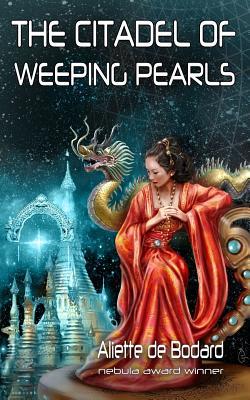 The Citadel of Weeping Pearls (Xuya Universe) by
The Citadel of Weeping Pearls (Xuya Universe) by 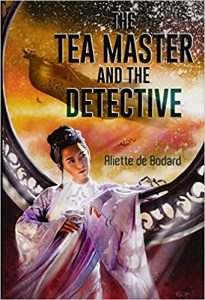 I’ve been nibbling at the vast, sprawling
I’ve been nibbling at the vast, sprawling  But nothing is quite as it seems, as the possibility of going back and bringing the Citadel forward forces everyone who has been touched by its disappearance to rethink what they did then, what they’ve felt in the absence of the shooting star that is/was Bright Princess Ngoc Minh, and what they might do with a second chance.
But nothing is quite as it seems, as the possibility of going back and bringing the Citadel forward forces everyone who has been touched by its disappearance to rethink what they did then, what they’ve felt in the absence of the shooting star that is/was Bright Princess Ngoc Minh, and what they might do with a second chance. Before the Coffee Gets Cold (Before the Coffee Gets Cold, #1) by
Before the Coffee Gets Cold (Before the Coffee Gets Cold, #1) by  Escape Rating A-: I picked this up – in fact I bought the whole series so far – because I’ve enjoyed several books recently that used this one as a pattern;
Escape Rating A-: I picked this up – in fact I bought the whole series so far – because I’ve enjoyed several books recently that used this one as a pattern; 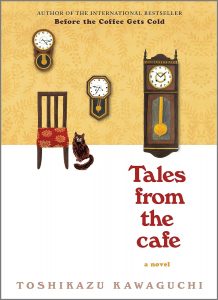 What makes the collection as a whole work is that the remaining stories move the time travel further back and forwards in time, but step by step – or story by story – closer to the cafe’s proprietors and from that sweet possibility of a happy ending to something much closer to the bitterness of the coffee they serve. With just a hint of sugar to help the poignancy to go down.
What makes the collection as a whole work is that the remaining stories move the time travel further back and forwards in time, but step by step – or story by story – closer to the cafe’s proprietors and from that sweet possibility of a happy ending to something much closer to the bitterness of the coffee they serve. With just a hint of sugar to help the poignancy to go down.